MAC-backed bills on road patrol funds clear House committee
 A MAC-supported legislative package to improve Secondary Road Patrol (SRP) funding via the state liquor tax passed out of the House Government Operations Committee this week.
A MAC-supported legislative package to improve Secondary Road Patrol (SRP) funding via the state liquor tax passed out of the House Government Operations Committee this week.
House Bill 5773, by Rep. Mike Mueller (R-Genesee), House Bill 5732, by Tommy Brann (R-Kent), and House Bill 5772, by Rep. David Martin (R-Genesee), would require that $15 million annually from the 4 percent excise tax on liquor go to SRP. At present, the fund receives a $10 assessment from civil infractions, so is dependent on the number of written traffic citations.
Rep. John Cherry (D-Genesee) offered an amendment to HB 5732 to send the $10 assessment on civil infractions to the Drug Treatment Court Fund instead. The amendment did not pass, though, as negotiations are ongoing with the State Budget Office on the use of those funds.
MAC supports these bills as they would create a more stable funding stream for sheriffs’ offices to support road patrols. MAC will continue to monitor the legislation as it moves to the House floor for consideration.
For more information on this issue, contact Meghann Keit-Corrion at keit@micounties.org.
All set for the 2022 Michigan Counties Legislative Conference?
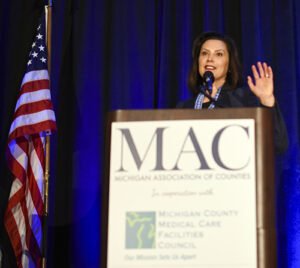 MAC and MCMCFC are wrapping up preparations for the 2022 Michigan Counties Legislative Conference that starts Monday, March 21 in downtown Lansing.
MAC and MCMCFC are wrapping up preparations for the 2022 Michigan Counties Legislative Conference that starts Monday, March 21 in downtown Lansing.
Registered attendees should have received an email this week on “Know Before You Go,” with various tips on parking, dining, conference venues, special events and more.
Gov. Gretchen Whitmer will be the conference keynoter, delivering prepared remarks and taking questions from MAC Board members on Wednesday morning, March 23.
The Tuesday slate of speakers is headlined by Denise Winfrey, first vice president of the National Association of Counties and a commissioner in Will County, Illinois.
PLEASE NOTE: On-site registration is available, both for the full conference or a single day.
See you in Lansing!
County MCFs need steady rate of state support, MCMCFC tells House panel
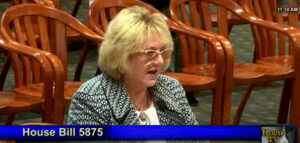 Michigan needs to extend the sunset on the current county maintenance of effort (MOE) rate for county medical care facilities (MCFs), so the rate remains capped and predictable, the executive director of the Michigan County Medical Care Facilities Council told legislators this week.
Michigan needs to extend the sunset on the current county maintenance of effort (MOE) rate for county medical care facilities (MCFs), so the rate remains capped and predictable, the executive director of the Michigan County Medical Care Facilities Council told legislators this week.
Renee Beniak testified in support of House Bill 5875, by Rep. Bronna Kahle (R-Lenawee), before the House Health Policy Committee, which Kahle also chairs. (Beniak’s testimony begins at the 50-minute mark of the video.)
The bill provides an extension to the MOE freeze until 2025, or until the Michigan Department of Health and Human Services (MDHHS) implements a new reimbursement model, whichever is sooner.
MDHHS has been studying and contemplating a new reimbursement model and policies for long-term care facilities. Should a new approach be implemented prior to Dec. 31, 2025, MCFs would transition to the new system under the bill.
Other organizations supporting the bill include MAC, the Health Care Association of Michigan and Leading Age Michigan. A committee vote on the bill could occur as early as next week.
For more information on this issue, contact Meghann Keit-Corrion at keit@micounties.org.
Podcast 83 reviews state of play on county issues at State Capitol
 In the latest live episode of Podcast 83 on Monday, March 14, host Deena Bosworth, subbing for Executive Director Stephan Currie, reviewed key county issues in play at the State Capitol with Meghann Keit-Corrion, governmental affairs associate.
In the latest live episode of Podcast 83 on Monday, March 14, host Deena Bosworth, subbing for Executive Director Stephan Currie, reviewed key county issues in play at the State Capitol with Meghann Keit-Corrion, governmental affairs associate.
Among them were the status of the water infrastructure supplemental spending bill, the debate over fuel tax cuts, broadband funding, federal budget politics and the bid to get reimbursements for the veterans property tax exemption.
To listen to the March 14 episode, click here, or visit MAC’s YouTube channel.
Due to the 2022 Michigan Counties Legislative Conference (March 21-23) and the Legislature’s spring break in early April, Podcast 83 is taking a hiatus from live episodes until Monday, April 11.
Look for information on future episodes in your April editions of Legislative Update.
State continues to shortchange public health, budget panel told
 More state investment is vital for local public health, the head of the Michigan Association of Local Public Health (MALPH) told the House Appropriations Subcommittee for the Department of Health and Human Services this week.
More state investment is vital for local public health, the head of the Michigan Association of Local Public Health (MALPH) told the House Appropriations Subcommittee for the Department of Health and Human Services this week.
MALPH Executive Director Norm Hess outlined the continued lack of state support for the essential local public health service budget line that funds a core set of basic public health services mandated by law. The Public Health Code requires the state to cover 50 percent of these services, with the remaining 50 percent covered by the local funding unit.
In 2018, however, the state contributed barely half of its required share.
Since then, the Legislature has increased funding to its current level OF $54 million, but that support is still nearly $24 million below the mandated level.
MALPH wants an additional $11.6 million in the FY23 state budget, followed by a $12 million bump in FY24, to get the state to its required contribution.
MAC supports this request and the principle of adequate funding for mandated local public health services, which, at minimum, should include full implementation of the 50/50 cost-sharing mechanism.
A full video of the session can be found here. (Hess’ comments begin at the 2-hour, 24-minute mark.)
For more information on this issue, contact Meghann Keit-Corrion at keit@micounties.org.
NACo updates Capitol Hill situation on ARP ‘clawback’
 The National Association of Counties provided the following update this week on the “state of play with Congress and the White House on a potential recission (or clawback) of ARP Recovery Funds for counties:
The National Association of Counties provided the following update this week on the “state of play with Congress and the White House on a potential recission (or clawback) of ARP Recovery Funds for counties:
“While congressional leaders pulled the recent agreement for $11.5 billion in new COVID investment for testing and PPE with over $7 billion offset from the STATE portion of Recovery Funds, we are still watching closely and urging all counties to let their congressional delegations know how their counties are INVESTING these dollars in important community priorities.
“Below are important talking points, with more context:
- Under the structure of the American Rescue Plan Act (ARP), which Congress passed in March 2021, counties are still scheduled to receive their second tranche of funding no earlier than ONE YEAR after they certified for their first tranche of funding. For most counties, this will occur in May 2022.
- Unrelated to ARP, in the original FY22 omnibus spending package, there was a provision that was included to provide an additional $15 billion in COVID-19 funding for therapeutics and testing, with congressional demands to offset these new additional COVID funding. To pay for a portion of the relief, $7.055 billion of unobligated ARP Coronavirus State and Local Fiscal Recovery Funds (Recovery Fund) would be rescinded. This was eventually removed from the bill and did not occur.
- Under this original offset mechanism, the bill would first look to the second tranche of ARP funding for 31 states for the clawback, and if there was not enough to cover the portion, it would be a waterfall of different levels of government – territories are the second option, tribal governments the third option and counties and cities as the LAST AND FOURTH option. NACo was given assurances that there were enough unobligated monies at the state level to cover this potential requirement.
- Although we avoided an ARP clawback with the omnibus package, we need to be aggressive in messaging how counties are making wise and timely investments to support our residents and economies. The consideration of how to invest these dollars and understand how they can best support our communities takes time.
- Highlight county plans through NACo’s Untold Stories campaign
- Work with local news and use NACo’s media toolkit
- We need to remind our federal partners of the Treasury certification process and steps for implementation and distribution of dollars:
- Although the ARPA was signed into law in March 2021, the U.S. Department of Treasury did not stand up the Coronavirus State and Local Fiscal Recovery Fund program until May 10, 2021, with the Final Rule only issued at the end of December 2021.
- The first report (Interim Report) was due on Aug. 31, 2021. Only counties that had certified for funds by July 15, 2021, were required to submit a report. Any county that certified after that date could submit a report 60 days after receiving dollars (beyond the Aug. 31, 2021, deadline).
- Therefore, despite 99 percent of counties now certified, the first wave of reports did not capture the amount counties have obligated and/or spent.
- Beyond the certification process, counties did not rush to invest funds for non-emergency uses to ensure coordination with state and local partners when allocating dollars to support residents and communities.
- County boards are moving wisely to approve plans and then work with internal and external partners to allocate funds.
“Future data from Project and Expenditure Reports due on Jan. 31, 2022, and April 30, 2022, will better capture the true investments made with Recovery Funds.”
For questions on this issue, contact Executive Director Stephan Currie at scurrie@micounties.org.
March 29 webinar to focus on broadband coverage
 Connect Michigan, a nonprofit working with the state to engage in a comprehensive broadband planning and technology initiative as part of a national effort to map and expand broadband, will host a webinar on March 29 on the new Michigan Broadband Infrastructure and Validation project.
Connect Michigan, a nonprofit working with the state to engage in a comprehensive broadband planning and technology initiative as part of a national effort to map and expand broadband, will host a webinar on March 29 on the new Michigan Broadband Infrastructure and Validation project.
The project goal is to collect and update data and maps of broadband services. The project will identify the location of broadband-related infrastructure that can deliver high-speed access throughout Michigan and help the state guide the use of its share of broadband funding under the federal Infrastructure Investment and Jobs Act.
Register for the webinar by clicking here.
For information, contact Hannah Sweeney at sweeney@micounties.org.
Registration is open for 2022 NACo conference in Colorado
 Please join county elected and appointed officials from across the country in Adams County, Colo., for the National Association of Counties (NACo) 2022 Annual Conference & Exposition. The conference is the premier national opportunity for counties to exchange cutting-edge practices, elect the association’s leadership and shape NACo’s federal policy agenda for the year ahead.
Please join county elected and appointed officials from across the country in Adams County, Colo., for the National Association of Counties (NACo) 2022 Annual Conference & Exposition. The conference is the premier national opportunity for counties to exchange cutting-edge practices, elect the association’s leadership and shape NACo’s federal policy agenda for the year ahead.
The conference run is July 21-24. Click here to register.
This year’s conference is headquartered at Gaylord Rockies Resort & Convention Center in Aurora, Colo. Committee meetings, educational workshops, general sessions, registration and the exhibit hall will be held here unless otherwise noted.
Special rates have been secured, but you must first register for the conference before booking your room. In addition to the headquarters hotel, several nearby hotels are also available at various price points. Click here for more details on housing.
Conference registration rates start at $530.
MAC will host an event at the conference for Michigan attendees.
Rooms in the hotel blocks are reserved for registered attendees. Negotiated rates will expire on June 24 or when the blocks sell out. Reservation instructions are available AFTER you register and will be included in your registration confirmation email.
 Staff picks
Staff picks
- How state broadband offices are spending federal funds (Governing magazine)
- Budget trade-offs and the price of tax relief (Citizens Research Council)
- Borrowing is getting more costly: What interest rate rise means for Michigan (Bridge magazine)
- Changes to no-fault auto insurance reforms stall out for legislative session (Michigan Advance)

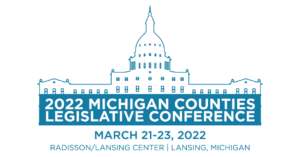 County officials have through March 15 to register for the 2022 Michigan Counties Legislative Conference in Lansing. While on-site registrations will be accepted starting on day 1 of the conference, March 21, the member fee will rise to $435, as compared to the early-bird rate of $395.
County officials have through March 15 to register for the 2022 Michigan Counties Legislative Conference in Lansing. While on-site registrations will be accepted starting on day 1 of the conference, March 21, the member fee will rise to $435, as compared to the early-bird rate of $395. Michigan ranks among the bottom half of states for broadband connectivity, an unfortunate fact that was all too apparent during the early months of the COVID-19 pandemic. The silver lining in this digital deficit, however, is that it now positions the state well in terms of federal funding assistance to connect homes and businesses.
Michigan ranks among the bottom half of states for broadband connectivity, an unfortunate fact that was all too apparent during the early months of the COVID-19 pandemic. The silver lining in this digital deficit, however, is that it now positions the state well in terms of federal funding assistance to connect homes and businesses.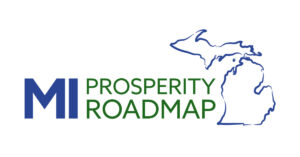 With Friday marking the 1-year anniversary of the passage of the American Rescue Plan Act (ARPA), Dan Gilmartin, Executive Director and CEO of the Michigan Municipal League, and Stephan Currie, Executive Director of the Michigan Association of Counties, issued the following statement on behalf of the
With Friday marking the 1-year anniversary of the passage of the American Rescue Plan Act (ARPA), Dan Gilmartin, Executive Director and CEO of the Michigan Municipal League, and Stephan Currie, Executive Director of the Michigan Association of Counties, issued the following statement on behalf of the  Senate bills that would privatize the state’s mental health system remain on the Senate floor, as MAC and other organizations work to defeat the legislation, which is strongly backed by Senate Majority Leader Mike Shirkey (R-Jackson).
Senate bills that would privatize the state’s mental health system remain on the Senate floor, as MAC and other organizations work to defeat the legislation, which is strongly backed by Senate Majority Leader Mike Shirkey (R-Jackson). The Michigan Department of Health and Human Services (MDHHS) Office of Child Welfare Services and Support released new program instruction this week regarding substance abuse testing. The new instruction discontinues the use of Averhealth for substance use testing.
The Michigan Department of Health and Human Services (MDHHS) Office of Child Welfare Services and Support released new program instruction this week regarding substance abuse testing. The new instruction discontinues the use of Averhealth for substance use testing. A March 29 webinar will focus on how courts can be more supportive in dealing with those with opioid use disorders.
A March 29 webinar will focus on how courts can be more supportive in dealing with those with opioid use disorders. Legislation that would provide grants to local pension systems passed the Michigan House of Representatives on Tuesday with a 71-33 vote.
Legislation that would provide grants to local pension systems passed the Michigan House of Representatives on Tuesday with a 71-33 vote.  Long-needed legislation to reimburse local governments from property tax losses due to an exemption for veterans moved to the Senate floor this week.
Long-needed legislation to reimburse local governments from property tax losses due to an exemption for veterans moved to the Senate floor this week. County leaders were briefed Wednesday by state officials on the latest information regarding money from the National Opioid Settlement during a
County leaders were briefed Wednesday by state officials on the latest information regarding money from the National Opioid Settlement during a  A bill introduced this week would ensure the maintenance of effort (MOE) rate to support county medical care facilities remains capped and predictable.
A bill introduced this week would ensure the maintenance of effort (MOE) rate to support county medical care facilities remains capped and predictable.  On Thursday in a joint committee meeting of the House Appropriations Committee and the House Tax Policy Committee,
On Thursday in a joint committee meeting of the House Appropriations Committee and the House Tax Policy Committee, 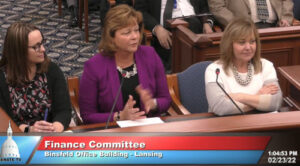
 Counties would have full freedom of action to set rewards they offer for information leading to an arrest and conviction under a bill passed unanimously by the Michigan House of Representatives this week.
Counties would have full freedom of action to set rewards they offer for information leading to an arrest and conviction under a bill passed unanimously by the Michigan House of Representatives this week. Gov. Gretchen Whitmer recently announced appointments to the Nursing Home Workforce Stabilization Council created by Executive Order 2021-15. Their goal will be to identify review, develop and recommend policies, administrative actions, legislative changes, and other approaches to support high-quality nursing home care.
Gov. Gretchen Whitmer recently announced appointments to the Nursing Home Workforce Stabilization Council created by Executive Order 2021-15. Their goal will be to identify review, develop and recommend policies, administrative actions, legislative changes, and other approaches to support high-quality nursing home care.  “A relatively strong economy and the availability of new federal funding creates circumstances for an unusual process for the Fiscal Year 2023 budget – a growth budget,” reports the Citizens Research Council of Michigan in announcing a March 4 webinar, “Analysis of Governor Whitmer’s Proposed FY2023 Budget.”
“A relatively strong economy and the availability of new federal funding creates circumstances for an unusual process for the Fiscal Year 2023 budget – a growth budget,” reports the Citizens Research Council of Michigan in announcing a March 4 webinar, “Analysis of Governor Whitmer’s Proposed FY2023 Budget.” A supplemental appropriation bill signed by Gov. Gretchen Witmer this week commits $1.2 billion to health care efforts in response to the COVID-19 pandemic.
A supplemental appropriation bill signed by Gov. Gretchen Witmer this week commits $1.2 billion to health care efforts in response to the COVID-19 pandemic.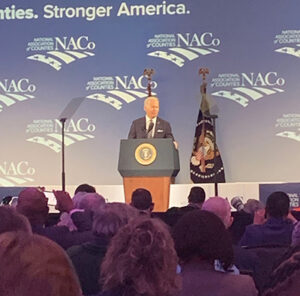 A delegation of more than 30 county commissioners and other county leaders led by MAC Board President Phil Kuyers of Ottawa County attended the National Association of Counties Legislative Conference in Washington, D.C., this week.
A delegation of more than 30 county commissioners and other county leaders led by MAC Board President Phil Kuyers of Ottawa County attended the National Association of Counties Legislative Conference in Washington, D.C., this week.


 MAC offices closed on Monday, Feb. 21
MAC offices closed on Monday, Feb. 21




